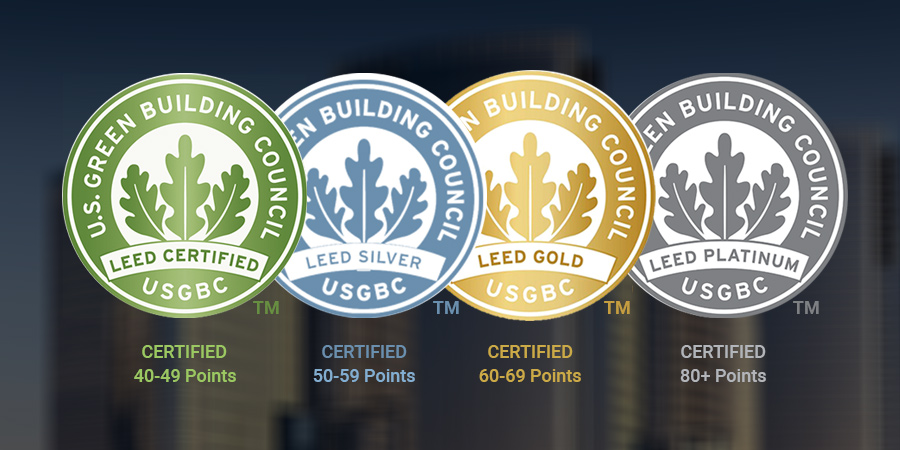Sustainability has become a central focus in modern construction projects. Designing and operating buildings that consider not only their environmental impacts but also human health and comfort is gaining increasing popularity. In this context, certifications like Leadership in Energy and Environmental Design (LEED) play a pivotal role in recognizing and promoting green buildings and sustainable practices. In this blog post, we’ll delve into what LEED Certification is, how it works, and why it’s a critical element for future construction projects.
Section 1: What is LEED Certification? LEED is a certification system used to assess and certify the design, construction, and operation of green buildings. This system encompasses various criteria, including energy efficiency, water use, material selection, indoor air quality, sustainable site selection, and innovation. Buildings can earn LEED certification by demonstrating compliance with these criteria.
Section 2: How Does LEED Certification Work? To achieve LEED certification, a building must meet specific scoring criteria. These criteria encompass reducing environmental impacts, achieving energy savings, and implementing best practices for human health. LEED certification requires third-party verification to ensure that the design and construction processes adhere to specific standards.
Section 3: Why Is LEED Certification Important? LEED Certification emphasizes both environmental sustainability and human health and comfort. This can lead to healthier and more productive occupants within the building. Additionally, LEED-certified buildings often experience higher tenant satisfaction, lower operational costs, and longer lifespans. Furthermore, these certifications encourage the adoption of green building practices.
Conclusion: LEED Certification can be the key to the success of green buildings and sustainability projects in the future. By merging environmental and human-centered design and operations principles, LEED-certified buildings contribute to a more sustainable and healthier future. Considering LEED Certification for future construction projects could be a significant step toward a better future for our environment and society.

